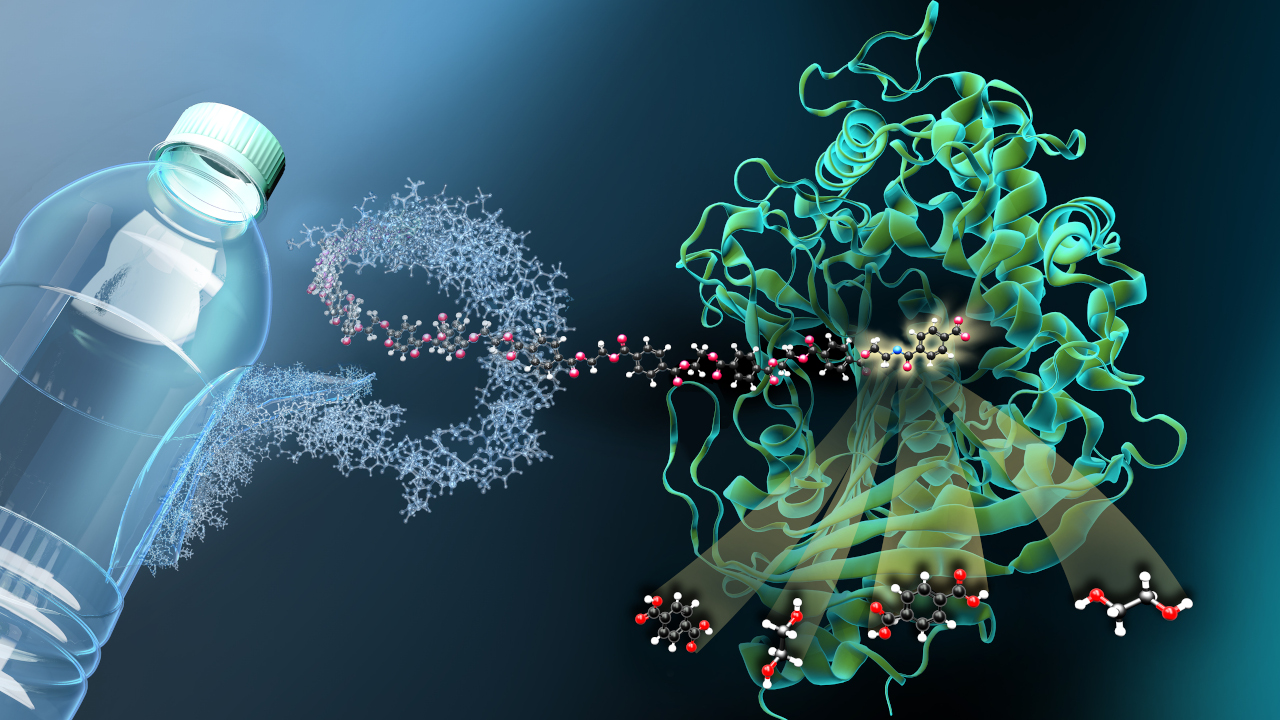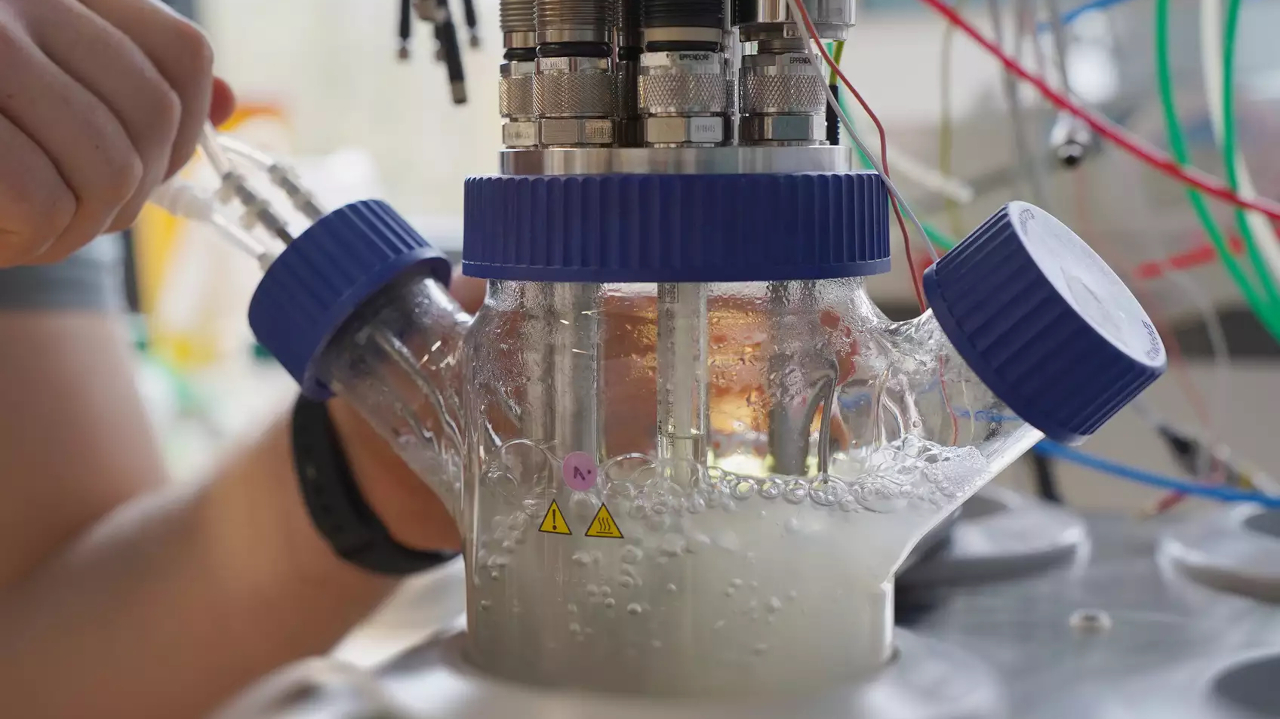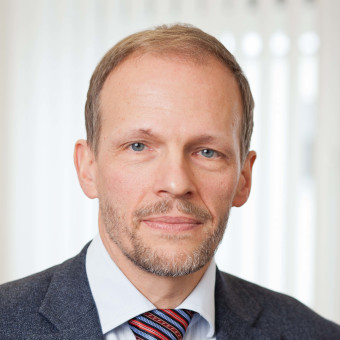iGEM Jamboree 2023: Four German teams among the top 10
At the grand finale of the iGEM competition for synthetic biology in Paris, the university teams from Braunschweig, Dresden, Freiburg and Heidelberg scored particularly well. The other German teams also came home with special prizes and medals.
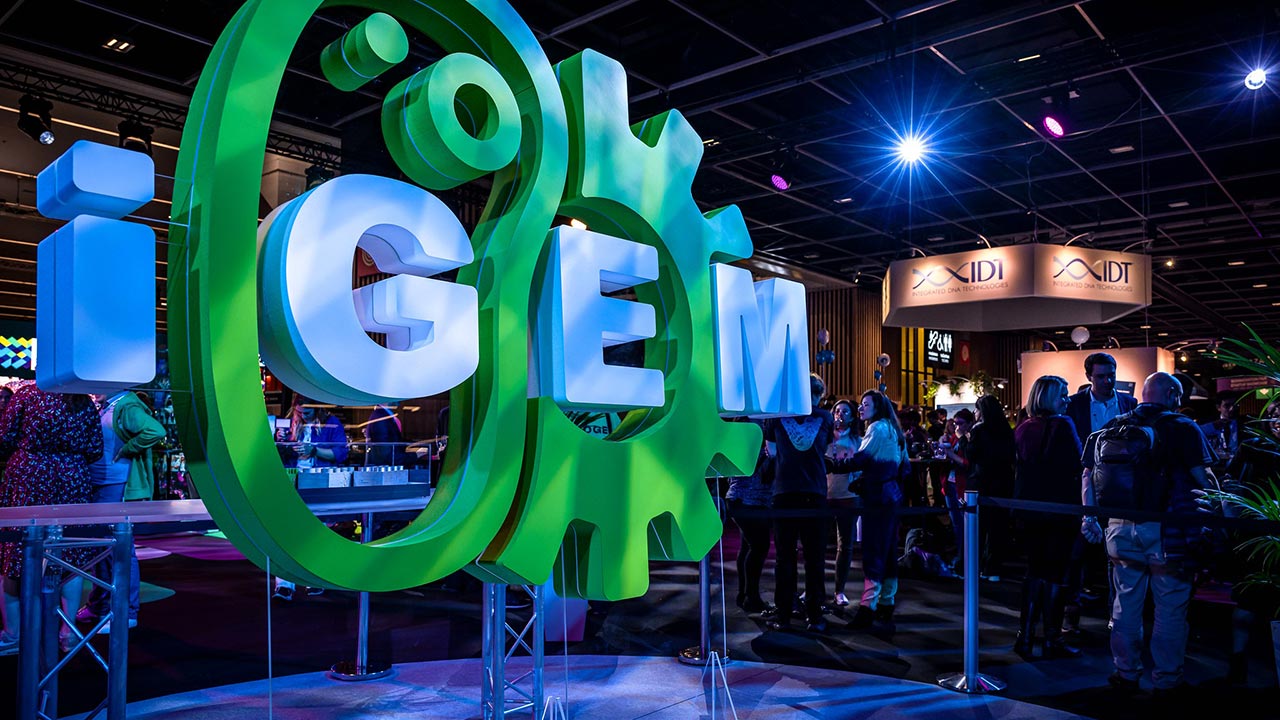
It may not have been enough for the Grand Prize, but four of the 19 German teams had a special reason to celebrate at this year's final of the iGEM Jamboree in Paris last week: at the most important global competition for school and university teams in the field of synthetic biology, the teams from TU Braunschweig, TU Dresden and the Universities of Freiburg and Heidelberg made it into the top 10 in the Overgraduate category, in which all German university teams compete. Overall, the German teams received numerous special prizes and eleven gold medals, seven silver medals and one bronze medal.
From 2 to 5 November 2023, around 400 teams took part in the 20th edition of the international genetically engineered machine (iGEM) competition. Around 5,000 participants came together at the Paris Expo exhibition centre for the largest ever edition of the annual competition for pupils and students who design and pursue their own synthetic biology research project within a year. For four days, they presented their projects and exchanged views on current trends and developments in the international applied life sciences scene.
Big opening show on Wednesday morning
The Jamboree opened on Wednesday morning with a grand opening show. While the teams taking part in the competition presented their work at individually designed stands, the "team booths", over the first three days, visitors were also able to obtain information at a large number of stands from companies in the international bioindustry, start-ups, institutions and organisations.
This year, the teams' projects were categorised into a total of eleven research areas, known as "Villages", which were divided into the "Planet", "People" and "Technology" areas. Each team presented its project to a selected jury of experts as well as to all interested parties on one of the seven public plaza stages spread across the 27,000 square metre site.
Numerous presentations, workshops and talks
In addition to this large number of team presentations, visitors were also able to take part in a variety of other events and offers, including separate workshops and keynote speeches by invited guests from academic and industrial research, a separately organised hackathon for those interested in technology and various networking spaces. An exhibition also impressively illustrated the 20-year history and development of the largest synthetic biology competition.
For the second time, iGEM also organised – this year in collaboration with the Organisation for Economic Co-operation and Development (OECD) – the "Responsibility Conference", which brought together representatives from international research, science policy and other interest groups. The participants discussed the future of responsible research with the young researchers in attendance. The "Bioinnovation Fair", a major event with workshops, talks and start-up showcases, also took place. Topics included the future of the bioeconomy and the importance, opportunities and further development of innovative research projects such as those within the iGEM competition.
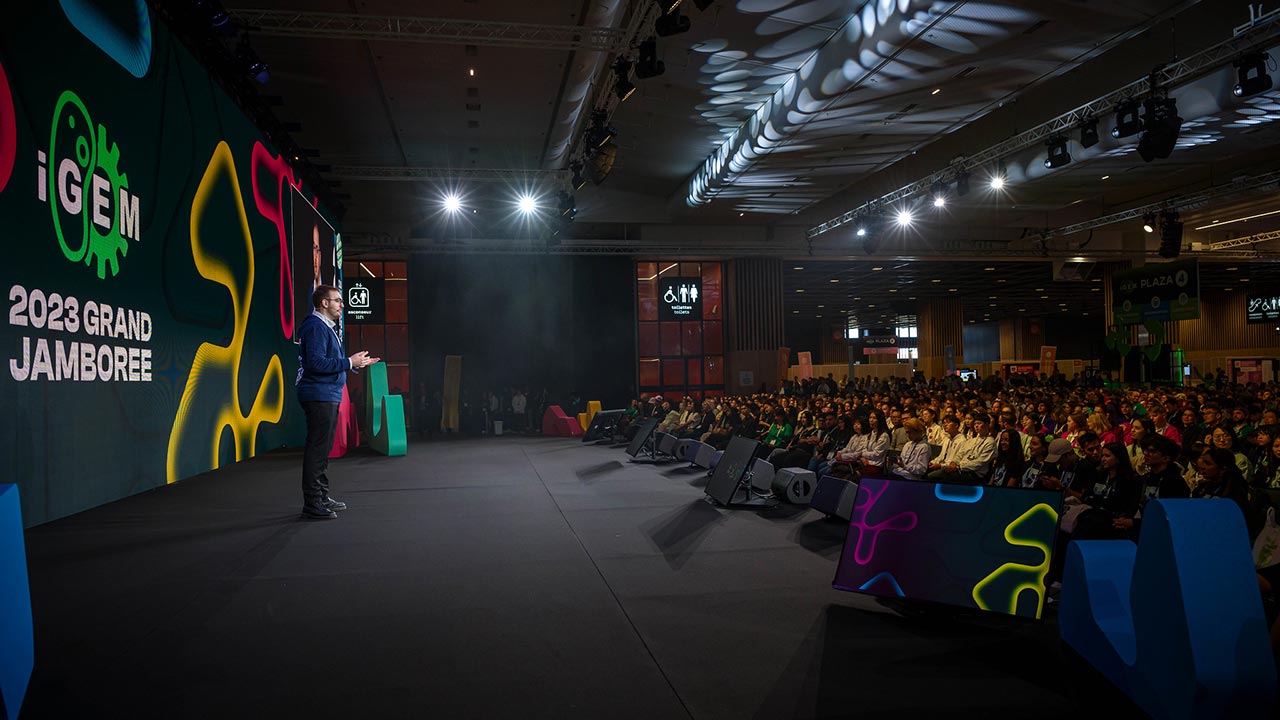
On the final day of the Jamboree, the best teams from the high school, undergraduate and overgraduate categories were once again able to present their projects on the big stage before the prizes for this year's competition in the various categories were presented in an impressive awards ceremony.
Special prizes for the German teams
In addition to the teams from Braunschweig, Dresden, Freiburg and Heidelberg finishing in the top 10, the German teams also received a number of other awards in the Overgraduate category: the team from Heidelberg won the prize for the best project in the field of bioremediation. The team from TU Braunschweig was recognised as the best diagnostics project.
In addition, special prizes were once again awarded to recognise special achievements in individual competition categories. The team from Heidelberg scooped two prizes: the Special Award for the best new composite part and the prize for the best sustainable development impact. The team from Marburg received the prize for the best plant synthetic biology project. The Hamburg team was honoured with the prize for the best presentation of the overgraduate teams, and the team from Münster received the Inclusivity Award.
Medaillen der deutschen Teams
Gold: Bielefeld, Braunschweig, Dresden, Freiburg, Frankfurt, Hamburg, Heidelberg, Kaiserslautern, Marburg, Munich (2x),
Silver: Aachen, Bonn-Rheinbach, Düsseldorf, Erlangen, Münster, Stuttgart, Tübingen
Bronze: Bochum
bioökonomie.de asked some iGEM teams to describe their impressions of the Grand Jamboree 2023. The successful teams from Braunschweig and Heidelberg share here:
Team Braunschweig – Lithiumtest für die Medizin
In the Li+onSwitch project, the iGEM team at TU Braunschweig developed a riboswitch-based system for the detection and quantification of lithium ions. This system is intended as the basis for a test system with which patients taking lithium medication can easily and quickly determine their lithium level in the blood. The good results of the Braunschweig team were also recognised by the jury at the Grand Jamboree: the project was awarded a gold medal and was named the best project in the "Best Diagnostic Project" category and placed in the top 10 overall. In addition, the genetic construct consisting of Riboswitch and Reporter was nominated for "Best Composite Part". "We are totally overwhelmed by the success and are delighted that our hard work has paid off," said a delighted team member Ronja Friedhoff after the award ceremony.
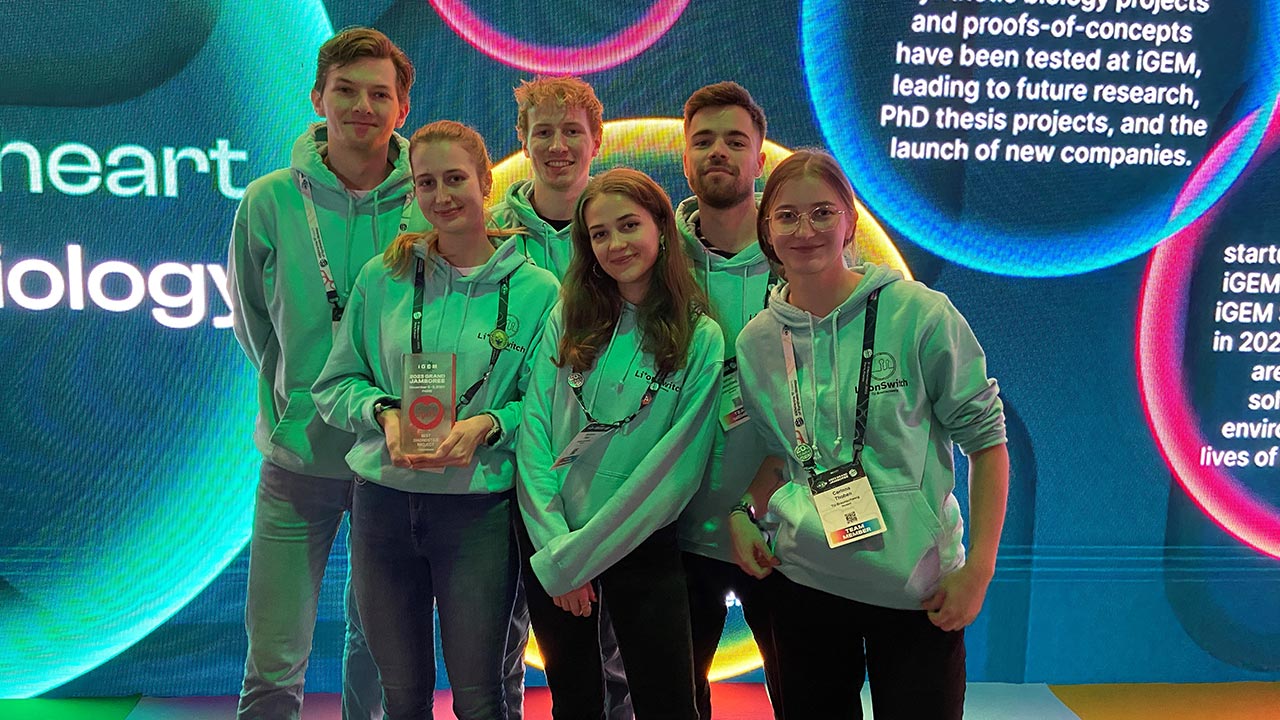
Smart plastics recycling - Team Heidelberg
A significant proportion of current plastic waste consists of mixed plastics that are difficult or impossible to recycle using current recycling methods. The iGEM Heidelberg 2023 team wanted to solve precisely this problem. The ReMixHD platform developed by the researchers consists of a co-culture of two strains of a bacterium that take over different steps of the recycling process and thus enable the degradation of PE and PET and simultaneous upcycling (production of the bioplastic PHA). To assess the performance of the platform in its real-life application, the team programmed a digital twin of ReMixHD.
"As soon as we arrived at the site, we knew that all the effort had been worth it," says Alewtina Towara. "We were aware that, regardless of how we would perform, we would gather a lot of new impressions, gain a lot of new knowledge and exchange ideas with people from all over the world who were just as enthusiastic about synthetic biology." The final show was indescribable. The team's joy at being nominated as the best project in the Bioremediation category in the Overgrade age group was unimaginable, as were the feelings when the team was announced as the winner. "The same applied to our nominations for 'Best Model' and 'Best Wiki' and when we were announced as winners of the special prizes 'Best New Composite Part' and 'Best Sustainable Development Impact'," says Towara happily. The crowning moment, of course, was when Heidelberg was displayed on the "TOP 10 Teams Overgrade" screen.
Team from Estonia wins the Grand Prize
The Grand Prize winners of this year's competition were the teams from Japan-United (high school category), Estonia-TUIT (overgraduate category) and McGill (undergraduate category). The Japan-United team is working on using synthetic biology to enable the bacterium Escherichia coli to produce three ingredients of the saffron plant that have an antidepressant effect. At the same time, they have developed a process that could make it easier for genetic engineering methods to overcome regulatory hurdles: It reliably stops the growth of E. coli.
The McGill team has developed a personalised treatment principle against cancer based on the CRISPR system Craspase. The method, which was initially developed for pancreatic cancer, is modular and should be transferable to other types of cancer. The Estonia-TUIT team uses genetically modified yeast cells to protect bees from certain viral infections. The yeasts produce an RNA molecule that prevents the viruses from multiplying in the bee cells by means of RNA interference.
bl
